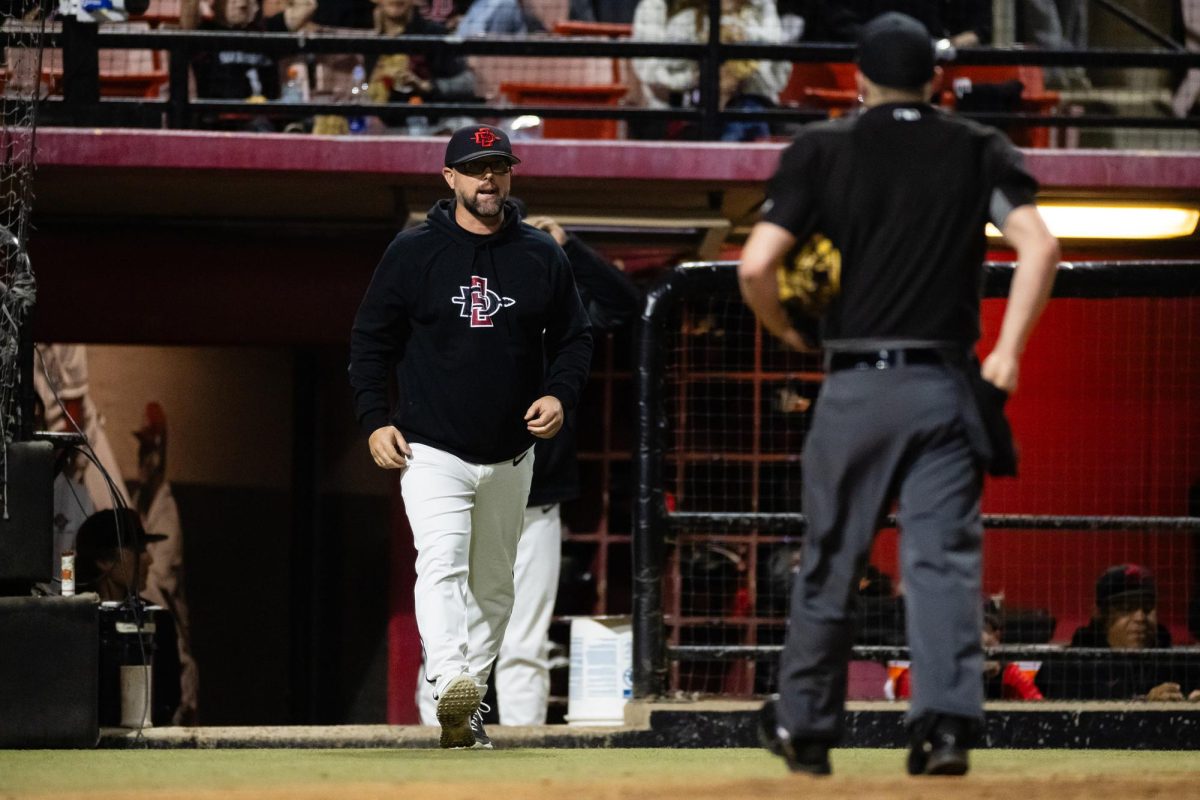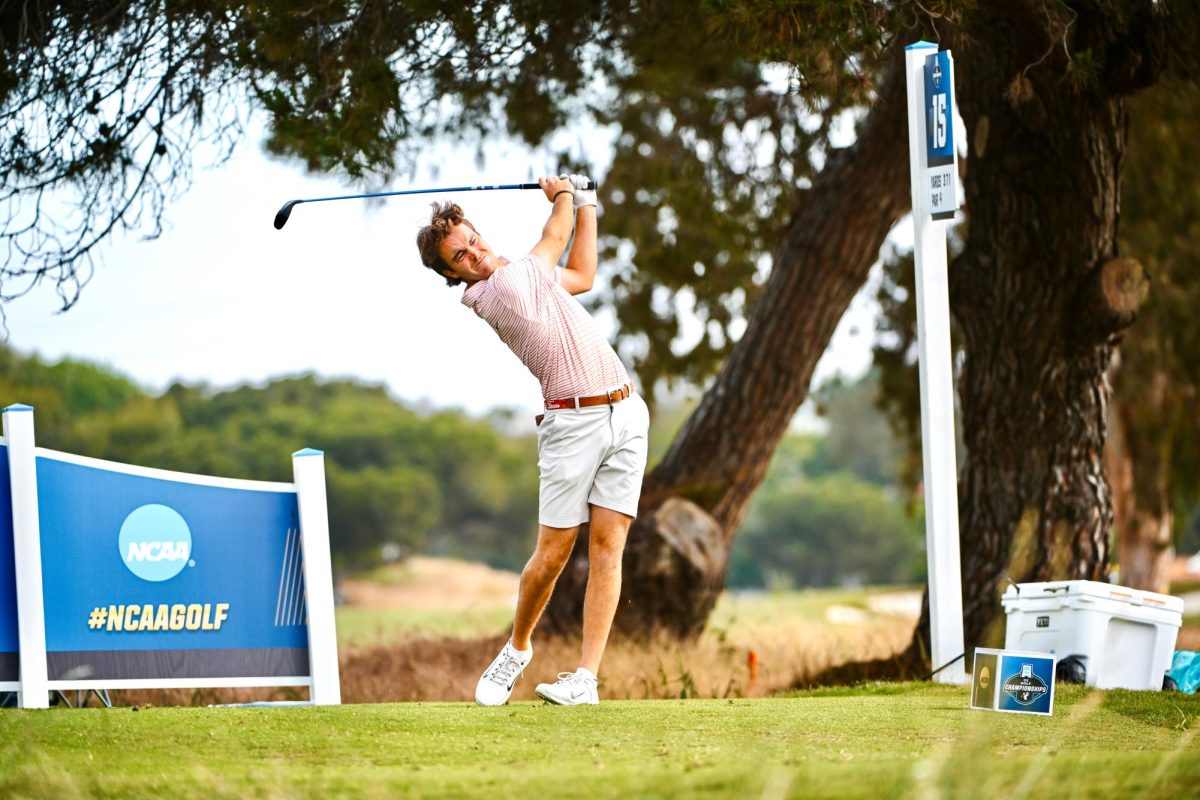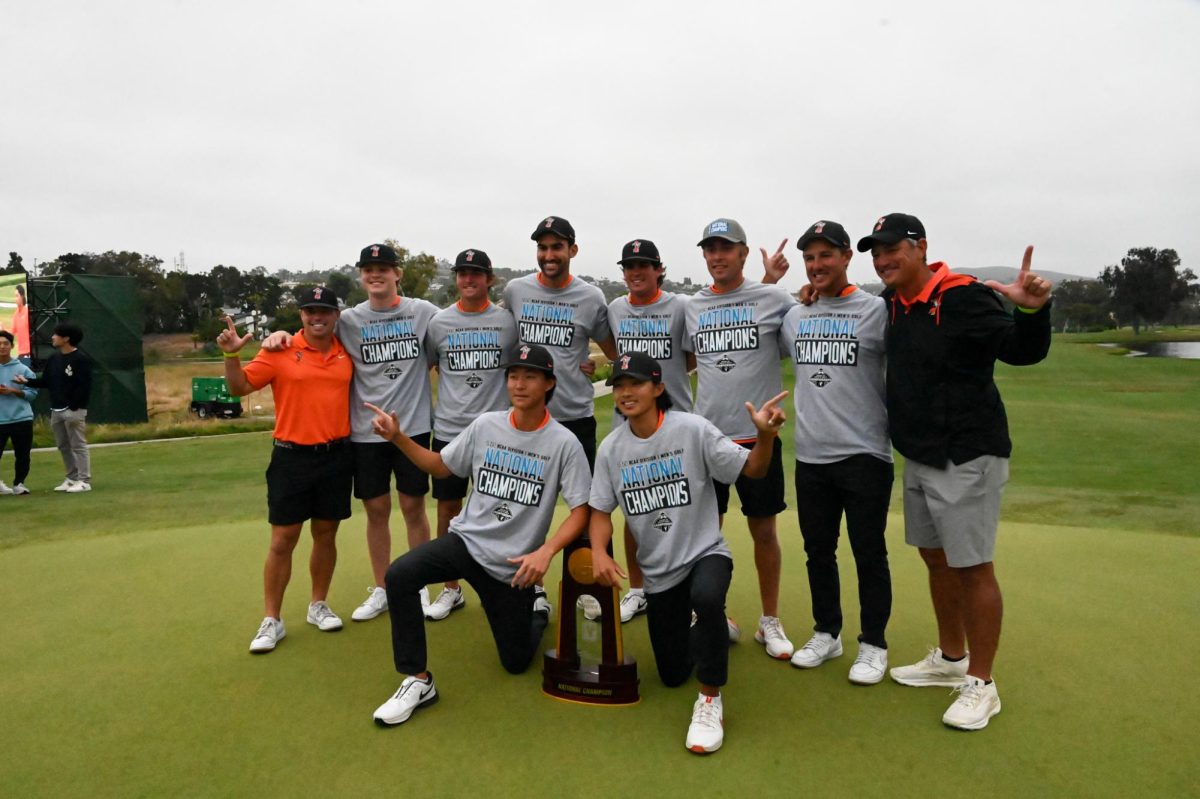
It’s an early October day at Tony Gwynn Stadium and Bryan Crabb is scheduled to pitch without a net in front of him. He’s facing live batters for the first time since his injury and he’s nervous.
He toes the rubber, spins the baseball’s seams through his fingertips, rears back and fires a fastball. It darts out of his hands, spinning at 90 mph toward his catcher’s mitt, when it suddenly takes a turn.
The ball hangs over home plate right in the sweet spot.
Oh no.
Crabb freezes. Tenses up. Braces himself. Not again, he thinks.
His mind races back to last May.
******
It was a chilly day in Provo, Utah. The San Diego State baseball team had lost the night before to BYU, and on this Saturday evening, Crabb was supposed to be the stopper.
He had struggled in his last few outings. He gave up five earned runs in less than four innings the week before to Air Force and gave up seven earned runs in less than four innings the week before that to New Mexico.
But against the Cougars on Larry H. Miller Field, things were supposed to be different. His dad, Gregg Crabb, had finally flown out to see him pitch during a game on the road, and this was when he was supposed to impress him.
“We were really hoping that this was the game where he was going to break out and do a great job,” his dad said.
In the first inning, Bryan Crabb couldn’t buy an out. He walked the first batter he faced and then gave up back-to-back singles. He gave up a run, and then another, before he was finally able to get out of the inning.
At the top of the second, he looked settled. He got BYU third baseman Austin Hall to foul out quickly.
But against the next batter, things went terribly wrong for the SDSU freshman.
He threw two straight balls to BYU second baseman Dane Nielsen, and he needed a strike. So he toed the rubber, spun the baseball’s seams through his fingertips, reared back and fired a 90 mph fastball toward his catcher’s mitt.
The ball darted out of his hands and spun toward the heart of home plate.
Uh-oh.
“Sometimes when I know it’s going to get hit, I brace myself just in case it comes back to me,” Bryan Crabb said. “So I started to bring my glove up as soon as I saw that it was coming back over the plate and I just couldn’t react in time.”
The white blur smacked off Nielsen’s bat and made a beeline straight for his head.
“Sitting in the stands, it’s just kind of surreal thinking back to it,” his dad said.
Bryan Crabb tensed up, turned his head and felt the baseball’s leather pound off the back of his skull.
He went down. He couldn’t see. He couldn’t hear. He was bleeding from his ear.
“It was the loudest ringing noise, like the loudest ringing noise you could think of. And I couldn’t see anything,” he said. “It was like when a bomb goes off next to somebody in a movie and there’s just ringing. That’s exactly what it was like. I saw figures, but I couldn’t make out who they were.”
He had fractured his skull in two places. He had bruising on his brain and was bleeding slightly.
He was helped off the field and then rushed into the locker room to his dad, who was waiting to see him. He then drove his son to the hospital.
“I was grabbing my ear because it was ringing so loud and I could tell there was blood in my hand,” Bryan Crabb said. “I just remember being in the hospital and once I got in the hospital they put me on a bunch of pain medicine and I went to sleep the whole time. But they had to wake me up every hour because I had to take a CAT scan the first night. It was miserable.”
He knew he was severely hurt, but didn’t know how miserable he was about to become.
He left the hospital less than a week later and flew back to San Diego. The ringing wouldn’t go away and he still had trouble seeing. It took about a month before he could even read again. And baseball? He had to forget about that during the summer.
“He couldn’t go out and do a little bit of running or jogging or something without hitting the pavement with his foot and causing a headache,” his dad said.
So he was holed up in his room. He was annoyed. All he wanted to do was pitch again, and take his mind off the pain. He also needed an outlet to take his mind off of his mom.
Lisa Crabb had been diagnosed with colon cancer in his senior year of high school. While he was fighting to see straight and get rid of his headaches, she was fighting for her life.
“His mom kept going downhill,” his father said.
In late July, she passed away. She never saw her son pitch at SDSU.
“That was the worst I could probably ever feel,” Bryan Crabb said.
“It was just a lousy summer for the whole family,” his dad shared.
It took weeks, and then months, for Bryan Crabb to start feeling better. The doctors told him it would take six months to recover from his head injury, but he had no timetable for his heavy heart.
Eventually, right around September, nearly four months after the injury, the headaches lightened up and he had baseball to put his mind at ease.
The doctors finally cleared him to pitch. He threw on the mound behind a net and felt good doing it.
There was no pain, his head wasn’t bothering him and if a batter hit one back at him, the net was there to protect him.
But in October, the Aztecs intrasquad scrimmaged. The net was taken away.
He was throwing to live batters for the first time since his injury.
******
He was frozen on that early October day at Tony Gwynn Stadium. His muscles locked up. His mind was 700 miles away, back in Provo.
The ball turned toward the heart of home plate, and the Aztec hitter smacked it.
But Bryan Crabb didn’t have to dive away, duck or run this time. The ball was hit nowhere near him. He was OK.
He locked in, and a few innings later, the injury wasn’t even on his mind.
“It just felt normal again,” he said.
Sometimes when he’s at home, he’ll think about that day against BYU. He’ll think about how awful his summer was and how he never wants that to happen to him again.
But he’ll go out there at 6 p.m. tomorrow night against Winthrop, take the Friday night ace role once occupied by Aztec legends Stephen Strasburg and Addison Reed, and only three things will be on his mind:
“Just try to throw strikes, work ahead in counts, and just try to keep my team in the ball game so we can win,” he said.
And if he gives up a home run, gets knocked around or loses the game, he’s going to be fine. He’s certainly been through worse.
“To be able to come back from that is really hard,” he said. “It gave me a lot of confidence that I can get through a lot of things if I can get through that.”






